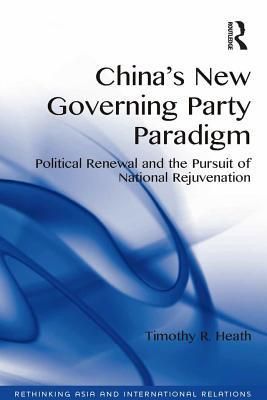
China's New Governing Party Paradigm Political Renewal and the Pursuit of National Rejuvenation
For the first time since its founding in 1921, the Chinese Communist Party (CCP) has adopted a new paradigm for its role in China. Abandoning its former identity as a 'revolutionary party', the CCP now regards itself as a 'governing party' committed to meeting the diverse needs of its people and realizing China’s revitalization as a great power. To enhance its ability to realize these aims, the CCP has enacted extensive political and ideological reforms. Central to that effort are changes to how the party develops and oversees strategy and policy. Few studies are available on the CCP's adoption of this new identity and of its political implications. This book remedies that oversight by explaining the historic context, drivers, and meaning of the governing party paradigm. It explains how adoption of this paradigm is transforming the processes through which the CCP develops strategy and policy. Furthermore, it differs from many other books in that it is the first to derive its analysis primarily from the study of authoritative Chinese sources. The book also provides an extensive array of helpful references, including chronologies, lists of major strategy documents, a glossary, and more. Accurately understanding the CCP's new role as a governing party requires a firm grasp of how China’s leadership formulates, documents, and implements strategies and policies to improve its governance and further the nation’s rejuvenation. This book provides such valuable information in one handy volume.